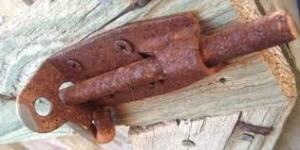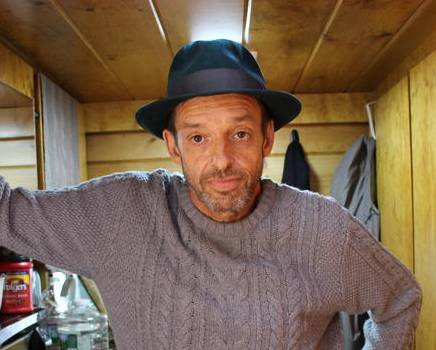
When I was in sixth grade, my science teacher was Mr. Lefave (most definitely not pronounced “Lefebvre,” although that name is pronounced “Lefave.” I suspect his family Americanized their name from that Scrabble-dream French moniker, confusing, I’m sure Jim Lefebvre, the second baseman for the Dodgers and an aspiring actor at the time. Lefebvre — the second baseman, not the science teacher — appeared on Gilligan’s Island and Batman, a strong foundation for a future as a thespian. He’d been Rookie of the Year, though, and was part of an all-switch-hitting infield, a bit of trivia with no real meaning. Much like this digression.)
Mr. Lefave was a kind man, a smart man, a patient man. In other words, he was the sort of teacher I wanted to upset, whose face I wanted to turn red, whose tongue I wanted to turn to butter with my nonsense. In the words of Bugs Bunny, I was a stinker and I wanted to make Mr. Lefave my stinkee.

One way I did this was by trying to work mucus, urine and feces into most discussions of general science. If we discussed nutrition, I wanted to know if it was possible to extract flushed vitamins from feces. If we reviewed friction, I wanted to know how to calculate the viscosity of mucus as it dried. If we had research to do on interactions between and among various substances, say calcium chloride’s ability to absorb liquids, one of the columns in my lab report would be urine — with a detailed description of its color.
Mr. Lefave was forced to teach, interact with and maintain patience toward a very verbal 3-year-old in a young adolescent body. My assault on him with various bodily fluids, though, was not enough to make him crack. He merely listened to my poop-, pee- and snot-based results, and moved on. I set out to find his weakness, and exploit it.
My probe for cracks in Mr. LeFave’s calm and cheerful disposition began as a serious question on my part, but by the end of the year had become a way for me to bring color to the teacher’s face just by using a single word, a four-syllable word perhaps never used before to crack a man. The word? “Oxidation.”
Let me explain.
Mr. Lefave taught us rust is a slow form of oxidation, using a simple definition of the latter word as “a process requiring oxygen.” He was absolutely right. He also taught us combustion is a quick form of oxidation. Also, absolutely right. Using the logic of the 12 year old, I stated, “So rust is a slow form of combustion? Rust is slow burning?” I, of course, was absolutely wrong.
“No, Keith. Rust and combustion are completely different actions.”
“But they’re both oxidation?” I asked.
“Yes, they are both forms of oxidation, but rusting is a slow process requiring oxygen and moisture, while combustion is a quicker process that only requires oxygen,” Mr. LeFave said, maintaining a smile.
“So rusting and burning are the same thing, except the moisture slows down the fire?” I asked, both intrigued by the notion, and enjoying watching my teacher squirm.
“No! They’re not the same thing!” LeFave was now exclamation pointing, a sure sign I was getting to him.

“Well, as a Boy Scout,” I said, appealing to my own authority — I hadn’t been kicked out of scouting yet — “I know moisture slows down combustion. I mean, it’s hard to burn wet leaves or wood. I just didn’t know a slow fire was rust, which is what you’re telling me.”
“I’m NOT telling you that!!” said LeFave, doubling his exclamationing. “I’m telling you the opposite of that. Rusting and burning are not the same thing!!”
“No,” I replied, pausing for effect. “Of course they’re not. You said rusting is slow, burning is fast but they’re both oxidation. Therefore, rusting is slow burning. That’s simple logic. Thanks for the information.”
“That’s not information!!!” he screamed, demonstrating I’d won the battle. “That is twisting my words around to make me look crazy!!!”
“Gee, Mr. LeFave, you don’t need me to make you look crazy. You do it every day, and all by yourself. Give yourself more credit. You’re stuck in a dead-end job, you talk at kids for seven hours a day and you don’t know how to spell your own last name. I think you deserve to be as crazy as you want.”
Here, like an umpire making a close call at the plate, Lefave made his hand into a fist with a raised thumb and I went to my home away from class — Mr. Platine’s office. I knew I’d get a detention or three, but I’d probed Mr. LeFave and discovered a weakness.
He didn’t understand simple logic.
 Keith Howard used to be a homeless drunk veteran. Then he got sober and, eventually, became director of Liberty House in Manchester, a housing program for formerly homeless veterans. There, he had a number of well-publicized experiences – walking away from federal funds in order to keep Liberty House clean and sober, a contretemps with a presidential candidate and a $100,000 donation, a year spent living in a converted cargo trailer in Raymond. Today, he lives in a six-by 12-foot trailer in Pittsburg, NH, a few miles from the Canadian border with his dog, Sam. There, Howard maintains tinywhitebox.com, his website, works on a memoir, and a couple of novels while plotting the next phase of his improbable life.
Keith Howard used to be a homeless drunk veteran. Then he got sober and, eventually, became director of Liberty House in Manchester, a housing program for formerly homeless veterans. There, he had a number of well-publicized experiences – walking away from federal funds in order to keep Liberty House clean and sober, a contretemps with a presidential candidate and a $100,000 donation, a year spent living in a converted cargo trailer in Raymond. Today, he lives in a six-by 12-foot trailer in Pittsburg, NH, a few miles from the Canadian border with his dog, Sam. There, Howard maintains tinywhitebox.com, his website, works on a memoir, and a couple of novels while plotting the next phase of his improbable life.







